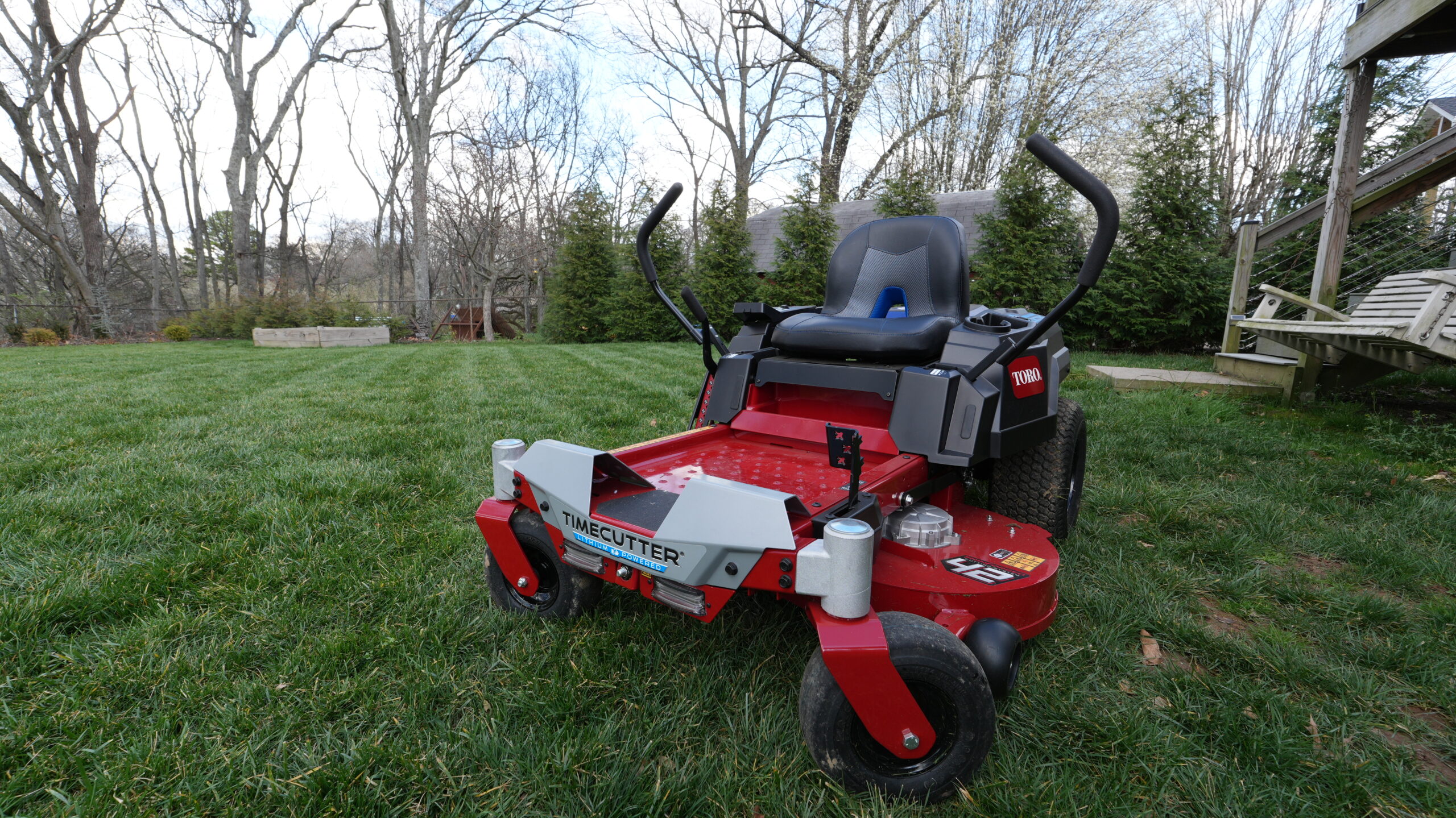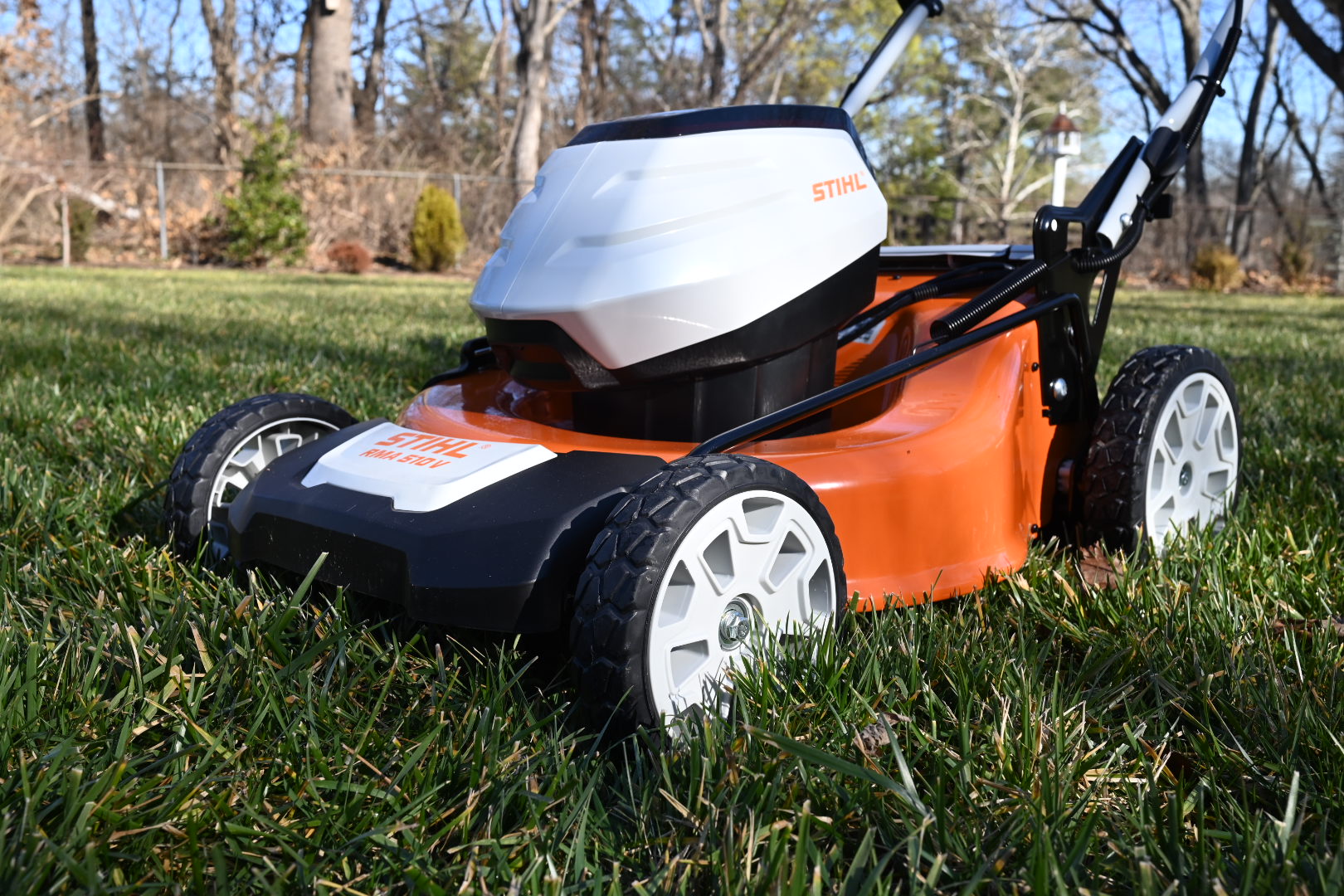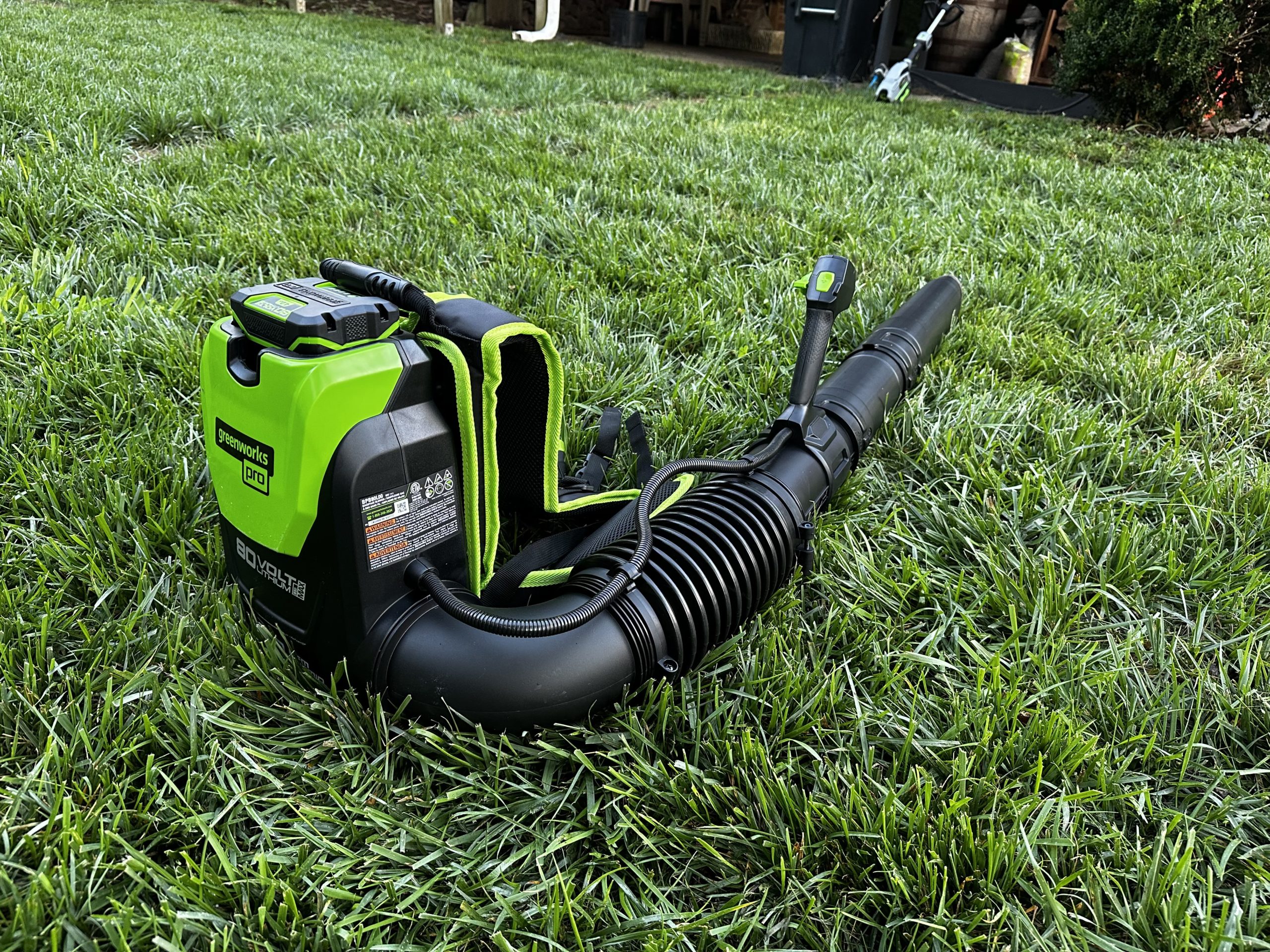The Greenworks dethatcher vs Sun Joe dethatcher is exactly like Tom Brady vs Peyton Manning. Both absolute greats, but Peyton clearly being the best. I like the Greenworks dethatcher better because it comes in at a lower price point.
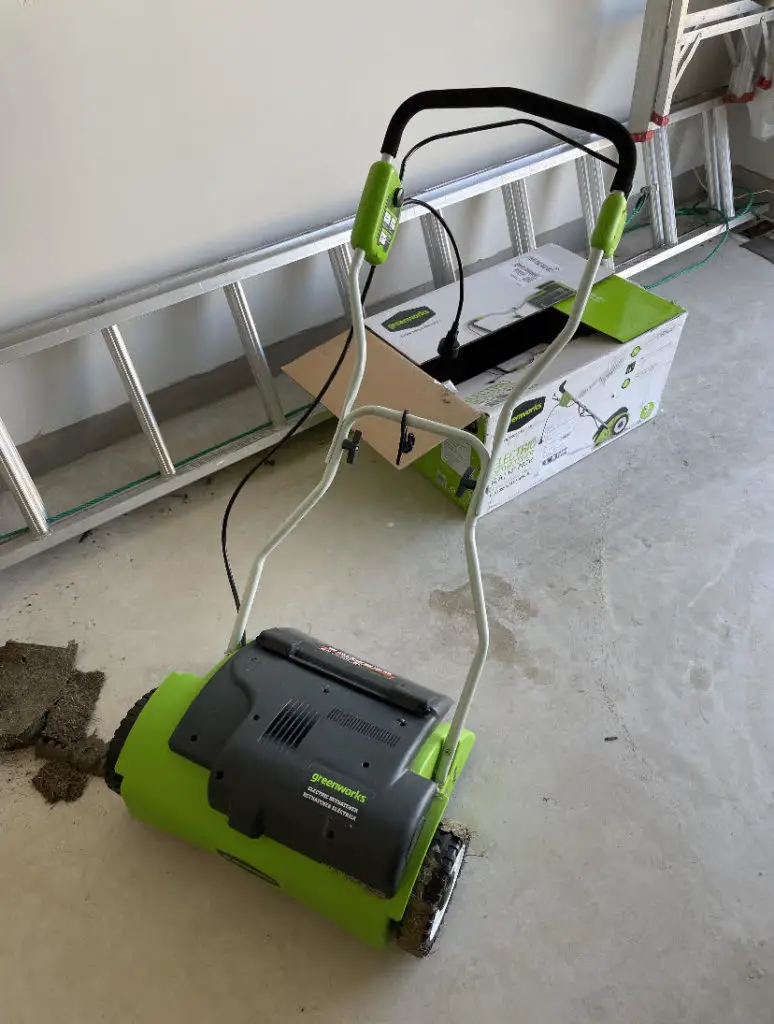
Just kidding – kind of. When looking for a lawn dethatcher, there are a few really important things to keep an eye on, and we will look at all of those here today.
Jump ahead:
- Why you need a dethatcher
- Electric dethatchers
- Greenworks vs Sun Joe
- Price comparison
- Final ruling: Greenworks vs Sun Joe
***Spoiler: Both are great, but we recommended the Greenworks dethatcher because of the price point. If you want a nicer version, check out the new cordless Greenworks dethatcher that I tested out here.
Greenworks dethatcher vs. Sun Joe dethatcher
Now that we know the how and why of dethatching, let’s roll up our sleeves and compare the top two choices. We will do a head-to-head comparison of the Sun Joe dethatcher vs the Greenworks dethatcher to make sure YOU make the best choice for YOU.
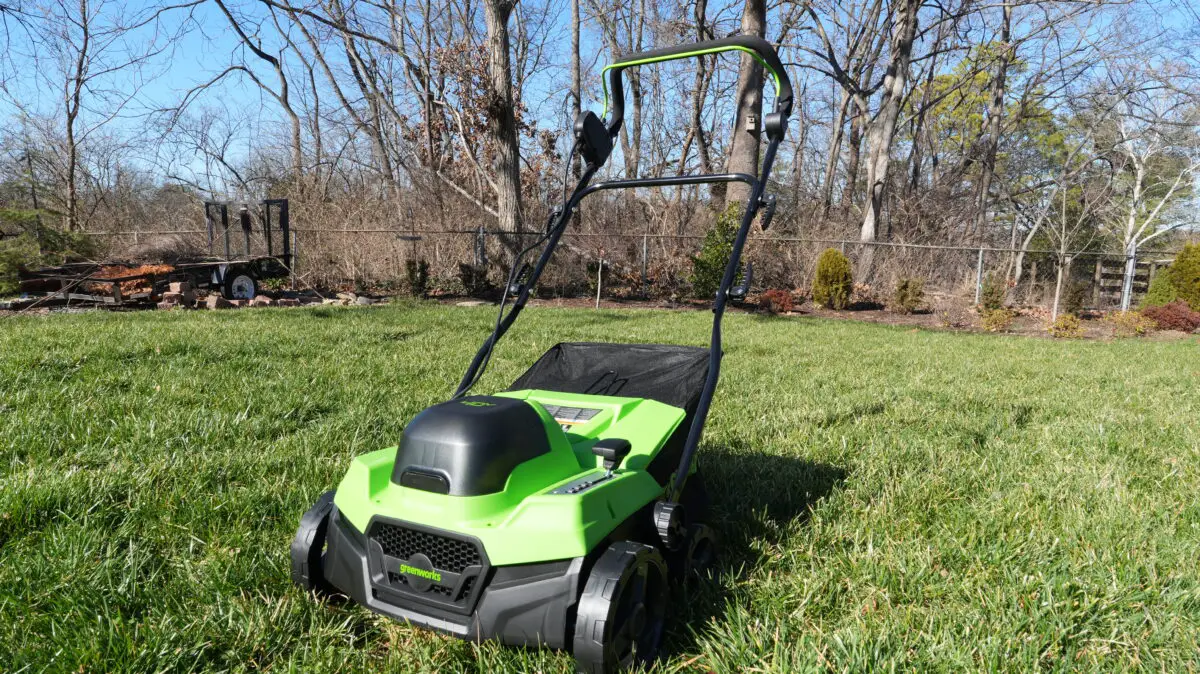
To read our full product reviews, click here for the Sun Joe dethatcher and here for the Greenworks dethatcher.
The Sun Joe is slightly more powerful
Let’s start here with expectation setting. These tools are not yard beasts. They require an extension cord (remember those?) and a bit of time and patience. When looking at power, the difference is really marginal.
The Greenworks dethatcher comes in at about 10A of power, whereas the Sun Joe offers 12A. A here stands for Amperes, or units of electrical power output. In reality, this difference will not be very noticeable or even necessary. Power is not the name of the game, but being methodical and patient are.

When it comes to this head to head, I’d love to make it a tie but the numbers just don’t work.
Sun Joe takes this round.
Usability comparison for these dethatchers
Alright, both of these operate basically the same. You plug them both in, press a button, then start slowly walking. When it comes to using a dethatcher, the most important aspect of the usability is really how much time you are going to be out there.
The amount of time you are out there is dependent on how wide the dethatcher is. Just like with mowers, the larger the blade size is, the larger the cutting path. The same is true with dethatchers. While they are notoriously small, every inch matters.
The width of the Greenworks dethatcher is 14 inches, whereas the Sun Joe is only 12.6 inches. For usability, I am going to go with Greenworks dethatcher.
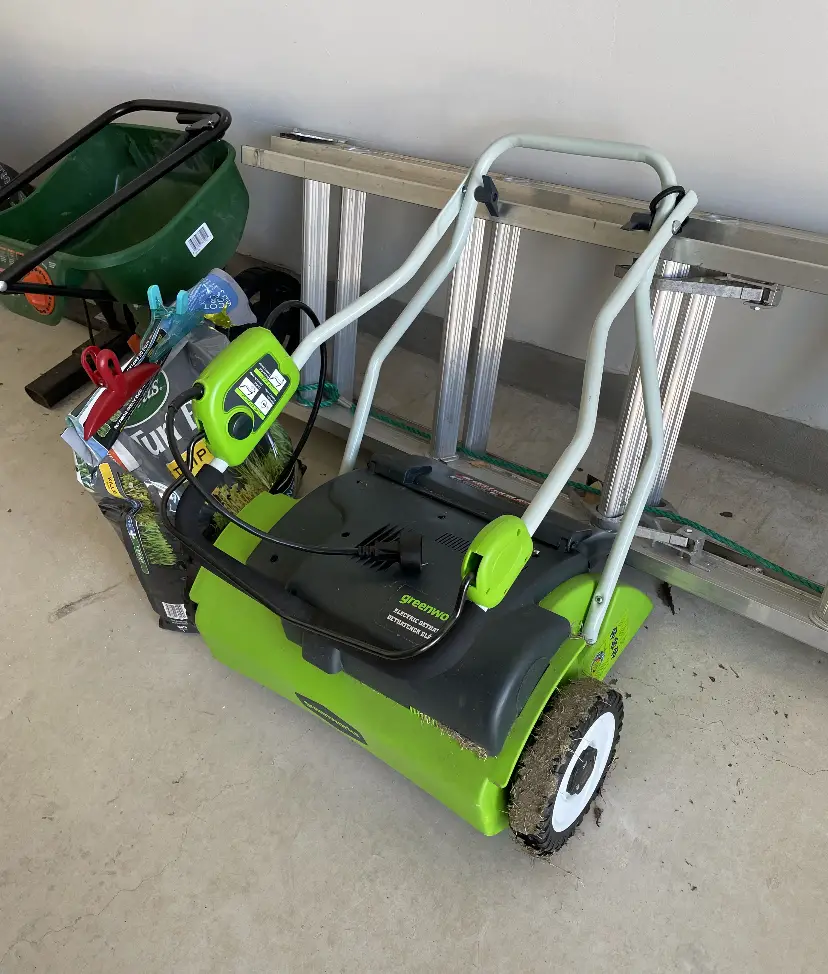
Add-ons to both Sun Joe and Greenworks dethatchers
The Sun Joe comes with a couple of add-ons that the Greenworks Dethatcher does not. Sun Joe offers a scarifier attachment and a bag for the thatch.
I don’t really think you need either. Definitely not the bag – the bag is useless because it is so small it gets full after about five feet of pushing. This will end up getting tossed.
The scarifier is an attachment that you can put on the dethatcher that has a few blades on it that can cut up the thatch before using the dethatcher. I’m iffy on this one as well and don’t ever use it. Others seem to like it, but I never have time for it.
The Greenworks is a bit cheaper
The Greenworks dethatcher comes in at a slightly lower price than and the Sun Joe dethatcher will cost you a slight bit more last time I checked.
As a reminder, the Greenworks does not have the attachments that the Sun Joe dethatcher has, but is wider.
Our ranking table comparison
Hands down – the Greenworks dethatcher is the way to go here, folks.
| Category | Greenworks dethatcher | Sun Joe dethatcher |
| Power | + | + |
| Usability | +++ | +++ |
| Price | ++++ | ++ |
| Appearance | ++++ | + |
| Overall | ++++ | ++ |
The Value of My Dethatcher
Dethatchers are a lesser-known lawn tool but that’s because most folks don’t care enough about their yard to use one. If you are reading this post, you are in the elite subgroup of yard enthusiasts who give a darn and are about to be the envy of all of your neighbors.
Dethatchers work by pulling up dead grass that is stuck to your lawn’s soil.
“Wait a second, that stuff is bad?”
Well, maybe not BAD, but it limits the amount of nutrients your soil can take in. We go out and pull weeds in the garden bed because they can overtake our flowers and bushes. The same goes for our grass. The thatch is not going to take over your yard and is dead, but it is still taking up valuable real estate that could help grow more grass.
When to dethatch your lawn
Dethatching your lawn should take place just prior to aerating and overseeding – so generally in the fall. For those of us that live in the South, this is sometime around mid to early October. If it’s too hot, the seed will dry up and not thrive. If it’s too cold, well, it is too late.
You can also dethatch at the end of a brutal winter to allow your soil to open up and breathe again before it warms up. So many lawns continue to limp into the spring because they are mushy and have a ton of moist thatch just clogging up the yard. Get rid of that.
Electric Dethatchers 101
Okay, let us make our way into the meat of this post. Old-school dethatchers are fine-toothed rakes that require you to physically make your way across the yard and pull up all the dead grass like a cave man. I do not recommend this to anybody that enjoys having a back.

On the flip side, there is a reason that motorized dethatchers are not gas-powered. Dethatchers, even motorized ones, require a slower movement across the yard. And honestly, that is a good thing. There’s no way to go through the process quickly. If you had a gas-powered dethatcher, you would basically till your entire yard and you might as well plant something else if you do that.
Check out our web story about electric dethatchers and how satisfying they are.
Electric dethatchers are perfect because they are super light, easy to use, and simply hover across your yard, pulling up all the dead thatch. The two most popular electric dethatchers are the Greenworks dethatcher and the Sun Joe dethatcher.

